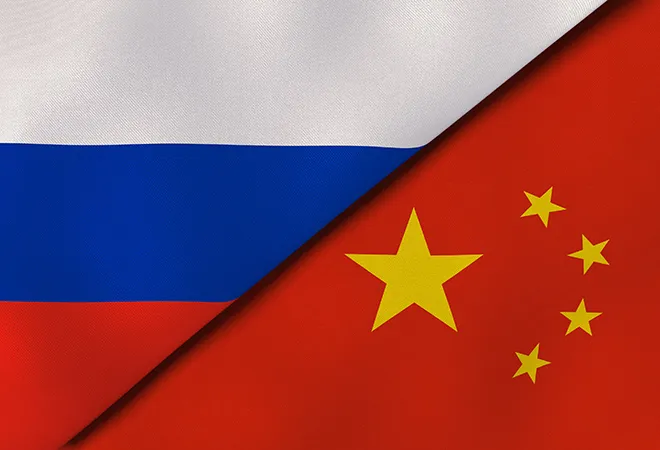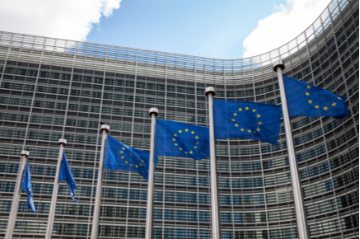
People look for connections, even when they do not exist. Literature is full of this very human trait, be it in Ian Fleming’s James Bond novels, or Arthur Conan Doyle’s Sherlock Holmes opus. In the latter, it is the dastardly Special Executive for Counter-intelligence, Terrorism, Revenge and Extortion (SPECTRE) organization which links the world’s myriad criminal activities into one, overarching multinational corporation of crime. In the former, it is embodied in the solitary, human figure of Professor Moriarty, a Jeff Bezos-style genius who, like a spider, painstakingly links together the various threads of crime, amalgamating them into his own personal web.
These stories are fascinating because they make the varied nature of the world uniform, the complicated simple, and all by ascribing powers to an overarching foe, that lumps all of the world’s many challenges together under one malevolent umbrella. This is a beguiling and enduring analytical notion, but it is usually entirely wrong. For, like it or not, the world is complicated. Today’s political risk analysts, in following this literary impulse—ascribing a simple villain or foe that explains away the planet’s more nuanced realities—entirely miss the point of the present fascinating, if complicated world we happen to live in.
The present state of play in the Sino-American Cold War in the Indo-Pacific favors the United States, if only because of the catastrophic errors Xi Jinping has made in scaring the horses, alerting the other great powers as to China’s malign, expansionistic tendencies. As such, India, the Anglosphere countries (with the growing exception of craven New Zealand), Japan, and the United States—both through the Quad collectively, as well as bilaterally—are increasingly of one strategic mind regarding China’s dangerous gambits. The obvious, and indeed, only, Chinese counter-move in terms of the world’s great power alliance structure is to link itself far more closely to its quasi-ally Russia, to partially balance the overwhelming alliance advantage the Americans presently possess.
But just because something is logical does not mean it has come to pass. Far too many political risk analysts have factored in a firm, coherent, and close Sino-Russian axis, as though it were a reality, when it is not. Just this past week provides a prime example of lumping things together that have nothing to do with one another. There has been a raft of news stories about China’s increasing threats against Taiwan, just as Russia has menaced Ukraine, by placing 80,000 troops on their common border. Given that the two are quasi-allies, it has been lazily assumed—in true Conan Doyle/Ian Fleming style—that a single, malevolent, plan is unfurling before our very eyes, just the latest SPECTRE-like effort at world domination.
Despite this making for a gripping latest James Bond novel, there is absolutely no evidence whatsoever to back up the frightening fiction that Sino-Russian ties are so close that they move together in strategic lockstep over the most serious issues they deal with as countries: That of war and peace. It is presently impossible to think of the two mortgaging their strategic futures and, indeed, survival to one another. This making of Russia and China into one malign force, a new axis of evil, is for both practical and ideological reasons at present a non-starter.
Practically, the two geostrategically engage the United States and its allies in very different ways, that don’t put nearly the strain on Washington that ‘the Moriarty thesis’ implies. A war with China over Taiwan, or in the Indo-Pacific writ large, would be primarily a maritime affair (calling on the Navy and Marine Corps); a war in Ukraine would be primarily a land-based affair (calling on the Army). As such, even if such a dastardly tie-up existed, it would not unduly strain America’s dominant military by forcing it to choose between the two conflicts. A joined-up Sino-Russian strategic alliance simply does not press the US nearly as much as is lazily assumed.
Ideologically, there remains the Batman problem. More than is true for most ruling elites, Vladimir Putin’s Russia and Xi’s China rise and fall on the perception of being successful nationalists. “The mandate of heaven,” the political legitimacy that keeps both in power, is predicted on them ‘Making Russia and China great again.’ The problem with a true, enduring, coherent, joined-up Sino-Russian alliance is that it calls on one of these arch-nationalists to settle into a subordinate role; to be Robin to the other’s Batman. Given the present power configuration, it is obvious that Russia would be the junior partner in any enduring alliance. Just as Mao Zedong abrogated the original Sino-Russian alliance, as after the death of Joseph Stalin, he was no longer content to serve in a subordinate role to Nikita Khrushchev, so Putin could not hope to save face with his people if he were to be Robin to Xi’s Batman. This ideational reality mightily mitigates against a more coherent SPECTRE-like alliance coming about.
Lastly, by linking together events and countries into one unholy alliance structure, today’s political risk analysts actually make such a tie-up far more likely. In assuming the two already act in perfect concert, analysts miss both the limits such a concord would actually bring, as well as missing the many opportunities to keep it at bay, by noting the two countries strains and differences. The great news at present in the Indo-Pacific is that an alliance structure is organically forming to balance against Chinese aggression. One of the worst things risk analysts can do is to make a complicated world simple, to ascribe a coherence to our common foes that simply does not exist. Leave Professor Moriarty and SPECTRE to the fiction where they belong. The real world is more variegated, more complicated, and more strategically advantageous than this.
The views expressed above belong to the author(s). ORF research and analyses now available on Telegram! Click here to access our curated content — blogs, longforms and interviews.




 PREV
PREV


